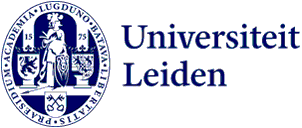
NIAS grant for research on ‘War on Drugs’
His article on ‘the War on Drugs’ in Colombia and the Philippines has been in the top five most downloaded articles of Oxford University Press for some time. Now, Assistant Professor Santino Regilme is to receive a NIAS grant to map out the global war on drugs.
‘Many governments all over the world apply a militaristic approach to narcotic drug regulation,’ Regilme explains. ‘Usually, they combine their approach with a focus on public health, but a lot of government budgets are spent on militarism.’
For his earlier article, Regilme compared two countries that have strong militaristic drug policies: Colombia and the Philippines. How have they implemented and justified their policies over the past two decades? Or, as Regilme puts it: ‘What political utopia do these leaders want to achieve?’
Global story
As is often the case in academic research, the comparison between these first two countries led to bigger questions. ‘I was interested in the topic, so I really wanted to start a book project on it,’ Regilme explains. ‘Again, Colombia and the Philippines are the focus, but this time Regilme supports these case studies with research on the situation in the United States, Portugal, and the Netherlands. The United States is militaristic, but Portugal is an example of a country that has curbed the spread of narcotics using a public health approach. The Netherlands is also tolerant.’
By comparing militaristic countries with more tolerant areas, Regilme wants to show the global story behind drug policies. ‘It's really about the theory of justification. What kind of justification do leaders use? I can imagine the Dutch government elites accepting that drugs will not be eliminated, while leaders of countries like Colombia and the Philippines will at least say publicly that they want to eliminate them.’
Renewed energy
A grant from the NIAS research institute will allow Regilme to focus exclusively on his research for five months: his teaching duties at the university will be taken over, so that he can concentrate fully on his research at the institute. ‘The pandemic has been challenging for all of us. I have been teaching online on full-time basis, dealing with students with so many problems and helping them to solve them as much as I can. I’m looking forward to sitting down and thinking about my research, and to working with other people in a new environment. I hope to return with renewed optimism and energy.’
